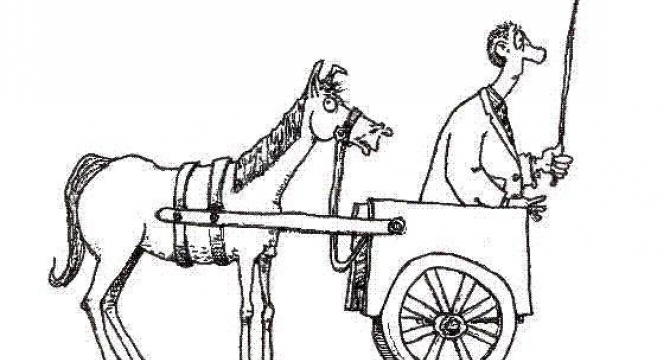Is our focus on assessment taking away from our children’s education?
Redefining the cart and the horse in public schooling
It has become clear to me that we’re spending way too much time focusing on assessment and evaluation. In fact, conversations about data driven decision-making, authentic assessment practices, design-down planning and testing protocols have now worked their way into the everyday vernacular of teachers and students, and have become such a strong plot line in the narrative of modern-day schooling, to the point where I fear that the very ideas and practices that are supposed to make our children’s education richer and more meaningful are actually having the opposite effect.
It has become clear to me that we’re spending way too much time focusing on assessment and evaluation. In fact, conversations about data driven decision-making, authentic assessment practices, design-down planning and testing protocols have now worked their way into the everyday vernacular of teachers and students, and have become such a strong plot line in the narrative of modern-day schooling, to the point where I fear that the very ideas and practices that are supposed to make our children’s education richer and more meaningful are actually having the opposite effect. All indications point to the fact that we have somehow convinced ourselves that assessment and evaluation policy and practice is our raison d’être in public schools.

Image retrieved from http://ddeubel.edublogs.org/2011/01/22/
Now don’t get me wrong; I’m not opposed to strong, equitable and responsive assessment practice. This needs to be an important pillar in modern schooling. I am, however, opposed to anything that suggests that assessment and evaluation are the new horses and that imaginative, passionate and inspired teaching is somehow secondary to the project.
When richly complex and engaging learning experiences are sidelined because they are “too difficult to assess”, we are taking something precious away from our children.
When our curriculum design and lesson planning is engineered and guided primarily by the set of expectations that will be measured and commented on come report card time, then we run the risk of losing sight of the real needs of the real students that we work with each day.
When our teachers feel that they have to rush through their work with students so that arbitrary reporting deadlines can be met, then they are forced into covering curriculum as opposed to uncovering or discovering it.
When our school days continue to be compartmentalized in order to reflect the boxes on our report cards, then we prevent both students and teachers from exploring the world in all of its integrated beauty.
In essence, if we want to encourage our teachers and students to become more deeply involved with what we are asking them to do, then we need to place our conversations about assessment and evaluation in their proper place. And believe me, that place is not in front of engaging, flexible and responsive teaching.
I have a few practical suggestions on how a better balance might be struck, but I will leave you with a few questions.
As an educator, how have you been able to negotiate the tension between quality teaching and quality assessment practice? Is there a tension for you?
As an administrator, how has the demand for data-driven decision-making changed your leadership style? Or has it?
As a parent, have you noticed a change in approaches to schooling compared to when you were a student?
As a policy-maker, has an increased focus on assessment and evaluation changed the types of conversations that are taking place for you?
